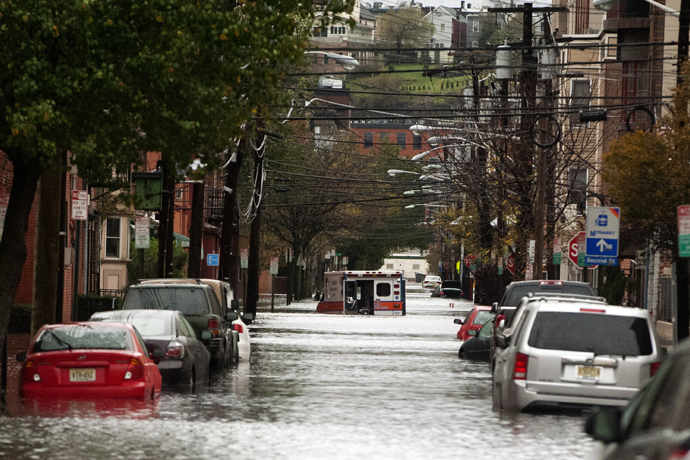We’ve Only Just Begun: Securing a Safe Water Future – An Interview with Rebekah Eggers

Cloud computing. Augmented intelligence. Blockchain. The business landscape is changing rapidly, observes Rebekah Eggers, IBM’s Global Water Lead. She also believes that new tools open up endless possibilities in the water industry
What are the current threats and opportunities for the water industry?
Our clients include major utilities and cities, and they are really focused on securing a safe water future. To us, that means working to establish the ecosystem necessary to plan, design, and develop adaptive and resilient measures into solutions that will ensure sufficient clean water for all in perpetuity, based on sustainable management and use of water resources and water infrastructure. These cities and companies are inherently very risk-averse, but they’re facing a water landscape that is undergoing massive change. Technology is evolving, stakeholders are expecting more, and water infrastructure is aging—along with the people in the industry that oversee it. Our clients are having to reinvent how they do business. They’re regularly making extraordinary things happen, against all odds. I get to work with some incredibly visionary leaders.
We hear a lot about the challenges cities face with aging infrastructure. How can better data help rusting water pipes?
Utilities, cities, and regional governments don’t always have the funds to replace infrastructure outright; they often need to use their existing infrastructure more strategically. Our Intelligent Water software helps them manage pressure, detect leaks, reduce consumption, mitigate sewer overflow, and better manage infrastructure, assets, and operations. It adds a layer of “digital intelligence” to water infrastructure, bringing together data that is often otherwise stuck in silos, and puts it to work. Our clients use it to optimize their resources; it gives them finer control over assets and maintenance, and helps them with asset investment planning. By harnessing data, they’re able to prioritize and also maximize the capacity of existing infrastructure. We identify which pipes are most likely to break next year; and we helped one agency save over $100 million in capex by showing them how they could better configure their existing CSO system rather than building a new one. Other clients have reduced capex needs by 10% or more.
The theme for GLOBE Forum 2018 is ‘disrupting business as usual.’ What technologies are doing that in your world?
Three groups of technologies come to mind: Cloud computing, cognitive computing, and the blockchain. With cloud computing, processing can and does happen anywhere. Already, we have smart water systems where sensors are monitoring water quality at fixed intervals. If the system detects an anomaly—something that isn’t supposed to be there—it can automatically increase sampling rates.
Cognitive technology is allowing us to ask more questions. We don’t call AI “artificial intelligence,” we prefer to say “augmented intelligence.” Our position is that AI is more of a symbiotic relationship—it’s not “man against machine in the battle for our jobs.” The magic is in the people who are training the machines to learn.
Finally, blockchain, or distributed ledger technology, allows people to interact instantly based on mutual trust, and without any central monitoring body. In the context of the water industry, you can imagine what opportunities this technology could enable when it comes to shared processes such as water trading or managing home water purification in the distant future.
Can you give us a hint?
If home or decentralized water treatment takes off as we are starting to see in places like Australia, blockchain could potentially be used in validating when someone contributes purified water back to the system, or validating that waste water has or has not been treated. A new business model could emerge here. But it has a more immediate role with things like water wheeling and water trading—automatically validating that water was or was not supplied as contracted and that payment was made accordingly.
In some industries, we’re seeing not just the power of the cloud, but the power of the crowd. Is that happening in the water industry?
I think it will be inevitable. In 2015, when IBM acquired the Weather Company—the company behind the fourth most popular app in United States—we also ‘adopted’ the Weather Underground, a community of more than 300,000 amateur meteorologists. They feed data from their own home weather stations into the company’s forecasting engine, which now runs on IBM’s powerful cognitive and analytics platform. The system processes 26 billion inquiries through its cloud-based services each day. Now imagine if we had a similar approach to measuring water quality in our homes. Many people have water treatment units in their home. What if all of them were connected, and able to share data? Residents and businesses could consume water with confidence and providers would be aware of issues in near real time, enabling more timely issue resolution. I believe that we can make a huge difference if we empower people with information.
You’re based in Los Angeles. Other than sampling our incredible tap water, what are you hoping to accomplish when you join us in Vancouver?
GLOBE Forum 2018 is an incredibly important opportunity for the industry to come together and share expertise. When projects, departments, agencies collaborate and share information, when vendors like IBM come together with competitors and others, in a business ecosystem to solve a problem, we get closer to that vision of a bright future. That happens when we put all our power, and all our effort into the same challenge, and that’s what GLOBE Forum is all about. We’ve only just begun to uncover what is possible. Let’s work together to drive real progress in our world!
This article is part of our new six-part content series, “Echoes of the Forum”, which provides exclusive videos, interviews, and key takeaways and actions from our world-leading sustainable business event – GLOBE Forum.
Our third chapter focuses on the role that materials and resources play in the transition to a circular economy.
View content
Categories

